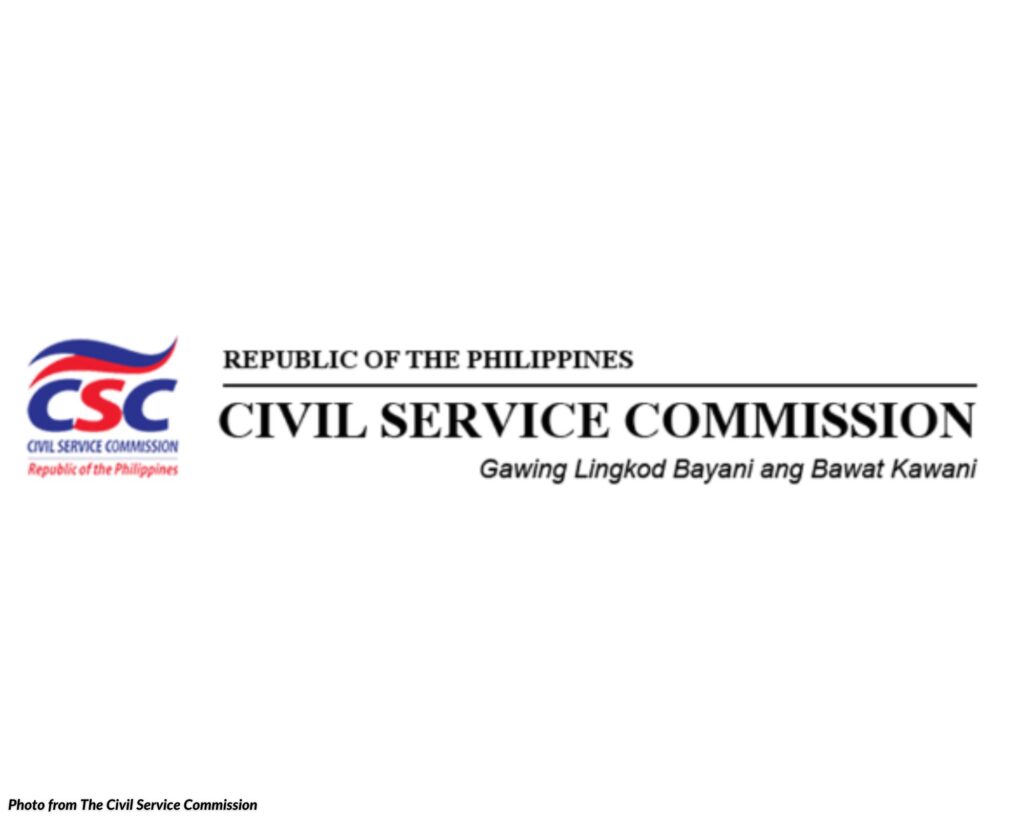
Photo from The Civil Service Commission
The following post does not create a lawyer-client relationship between Alburo Alburo and Associates Law Offices (or any of its lawyers) and the reader. It is still best for you to engage the services of a lawyer or you may directly contact and consult Alburo Alburo and Associates Law Offices to address your specific legal concerns, if there is any.
Also, the matters contained in the following were written in accordance with the law, rules, and jurisprudence prevailing at the time of writing and posting, and do not include any future developments on the subject matter under discussion.
AT A GLANCE:
The 1987 Constitution created the CSC as the central personnel agency of the government mandated to establish a career service and promote morale, efficiency, integrity, responsiveness, progressiveness, and courtesy in the civil service. It is a constitutionally created administrative agency that possesses executive, quasi-judicial and quasi-legislative or rule-making powers. (Republic of the Philippines/Department of Education vs. Eulalia Maneja, G.R. No. 209052, June 23, 2021)
The law says:
Public Law No. 5 of 1990 is an Act for the Establishment and Maintenance of an Efficient and Honest Civil Service in the Philippine Island, formally establishing the civil service system in the Philippines by the Second Philippine Commission, creating the Civil Service Board which, in 1905, was recognized into a Bureau.
The 1987 Constitution says:
“The civil service embraces all branches, subdivisions, instrumentalities, and agencies of the Government, including government-owned or controlled corporations with original charters.” (Article IX-B, Section 2(1), 1987 Constitution)
“Appointments in the civil service shall be made only according to merit and fitness to be determined, as far as practicable, and, except to positions which are policy-determining, primarily confidential, or highly technical, by competitive examination.” (Article IX-B, Section 2(2), 1987 Constitution)
“Civil Service Commission, as the central personnel agency of the Government, shall establish a career service and adopt measures to promote morale, efficiency, integrity, responsiveness, progressiveness, and courtesy in the civil service. It shall strengthen the merit and rewards system, integrate all human resources development programs for all levels and ranks, and institutionalize a management climate conducive to public accountability. It shall submit to the President and Congress an annual report on its personnel programs.” (Article IX-B, Section 3, 1987 Constitution)
Mandate:
The Civil Service Commission promotes morale, efficiency, integrity, responsiveness, progressiveness, and courtesy in the Civil Service. It adopts measures to strengthen the merit and reward system, integrates all human resources development programs for all levels and ranks, and institutionalizes a management climate conducive to public accountability. (Public Law No. 5 of 1990)
The Civil Service Commission (CSC) holds a vital role in upholding the integrity, effectiveness, and openness of the civil service sector. Enacted through Public Law No. 5 of 1990, the CSC is entrusted with a spectrum of important responsibilities aimed at ensuring that the selection, advancement, and performance of civil servants adhere to prescribed standards. In this regard, the following are the key functions of the Civil Service Commission as the central personnel agency of the government exercising executive, quasi-judicial and quasi-legislative or rule-making powers.
I . Recruitment and Selection
A core responsibility of the CSC is to supervise the recruitment and selection procedures for civil service positions. This encompasses the establishment and execution of equitable and transparent processes designed to attract capable candidates to public service roles.
II. Establishment of Personnel Policies
The CSC is tasked with creating and executing personnel policies and directives. These directives establish a structured foundation for civil servants and their employers, ensuring a uniform methodology in personnel administration across diverse government entities.
III. Training and Development
The CSC takes charge of designing and overseeing training programs that enhance the skills, knowledge, and capabilities of civil servants.
IV. Performance Evaluation and Accountability
The CSC sets up performance appraisal frameworks to gauge the proficiency and productivity of individuals within their designated roles. This procedure fosters accountability and serves as a foundation for acknowledging and commending outstanding performance, while also pinpointing areas for enhancement.
V. Discipline and Grievance Handling
In upholding a disciplined and responsible civil service, the CSC supervises the management of disciplinary matters and complaints. This encompasses the thorough examination of grievances, guaranteeing fair procedures, and implementing suitable penalties as warranted. This role serves to protect the integrity of the civil service and uphold public confidence in governmental institutions.
VI. Policy Recommendations
The CSC serves as an advisory body, offering recommendations to the government on matters related to civil service administration and reform. Drawing on its expertise and experience, the commission contributes valuable insights and proposals that can lead to more effective and efficient public administration.
Read also: Who are covered by the Civil Service Law?
Alburo Alburo and Associates Law Offices specializes in business law and labor law consulting. For inquiries regarding taxation and taxpayer’s remedies, you may reach us at info@alburolaw.com, or dial us at (02)7745-4391/0917-5772207.
All rights reserved.


